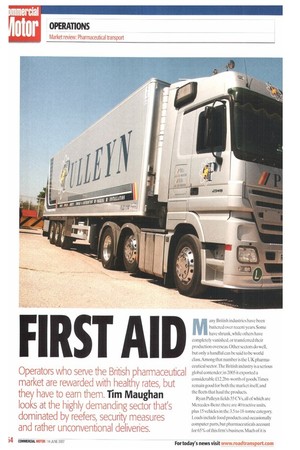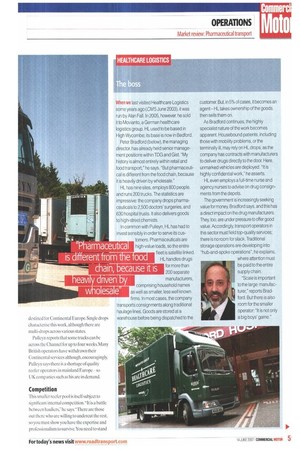FIRST 1
Page 54

Page 55

If you've noticed an error in this article please click here to report it so we can fix it.
Operators who serve the British pharmaceutical market are rewarded with healthy rates, but
they have to earn them. Tim Maughan
looks at the highly demanding sector that's dominated by reefers, security measures and rather unconventional deliveries.
Many British industries have been battered over recent years. Some have shrunk, while others have completely vanished, or transferred their production overseas. Other sectors do well, but only a handful can be said to be world class. Among that number is the UK pharmaceutical sector:The British industry is a serious global contender; in 2005 it exported a considerable £12.2bn-worth of goods.Ti rites remain good for both the market itself, and the fleets that haul the products.
Ryan Pulleyn fields 55 CVs, all of which are Mercedes-Benz: there are 40 tractive units, plus 15 vehicles in the 3.5 to 18-tonne category. Loads include food products and occasionally computer parts, but pharmaceuticals account for 65% of this firm's business. Much of it is destined for Continental Europe. Single drops characterise this work, although there are multi-drops across various states.
Pulleyn reports that some trucks can be across the Channel for up to four weeks. Many British operators have withdrawn their Continental services although, encouragingly, Pulleyn says there is a shortage of quality reefer operators in mainland Europe --so UK companies such as his are in demand.
Competition
This smaller reefer pool is itself subject to significant internal competition."It is a battle between hauliers," he says. "There are those out there who are willing to undercut the rest, so you must show you have the expertise and professionalism to survive.You need to stand


























































































































































































